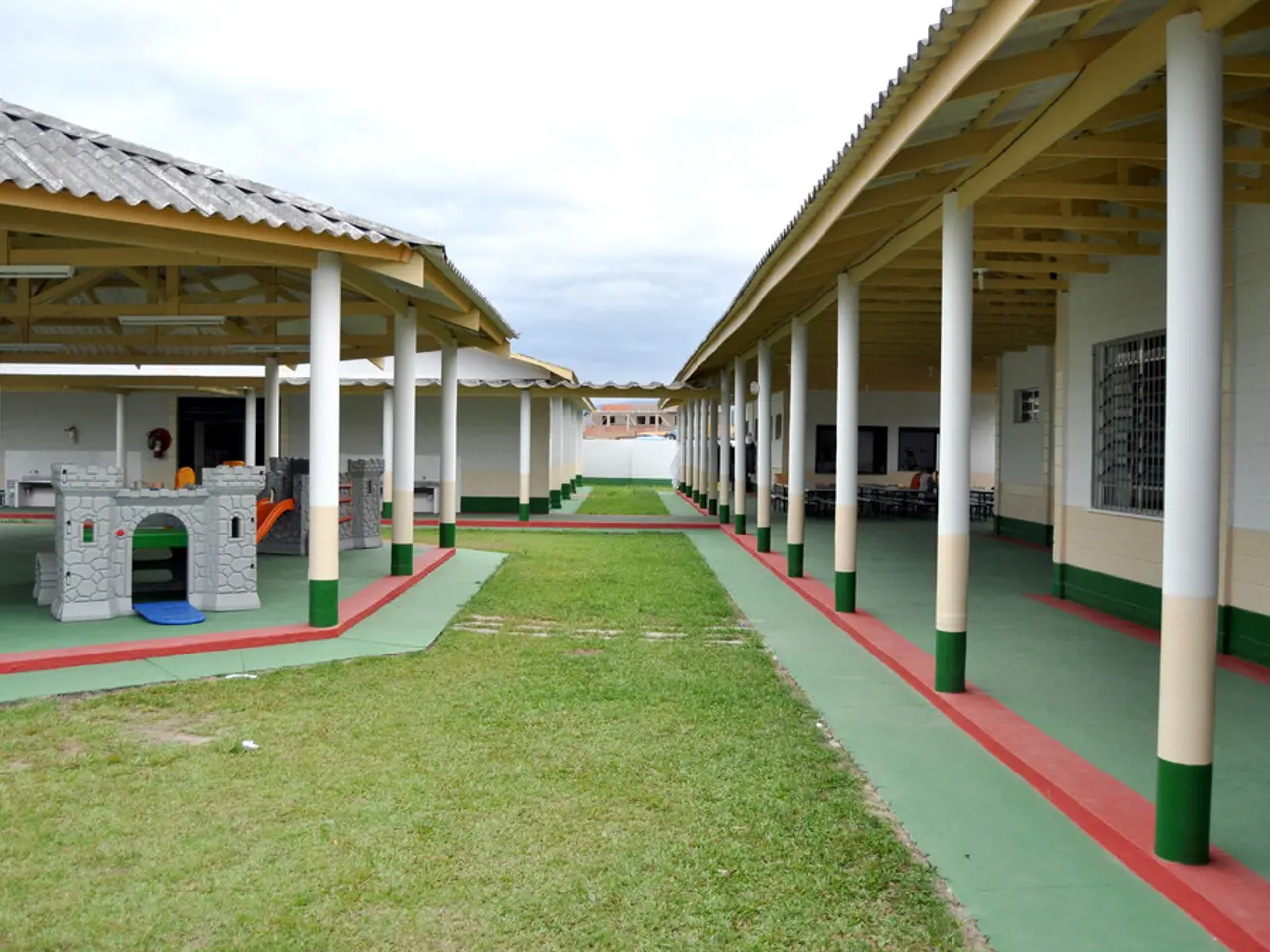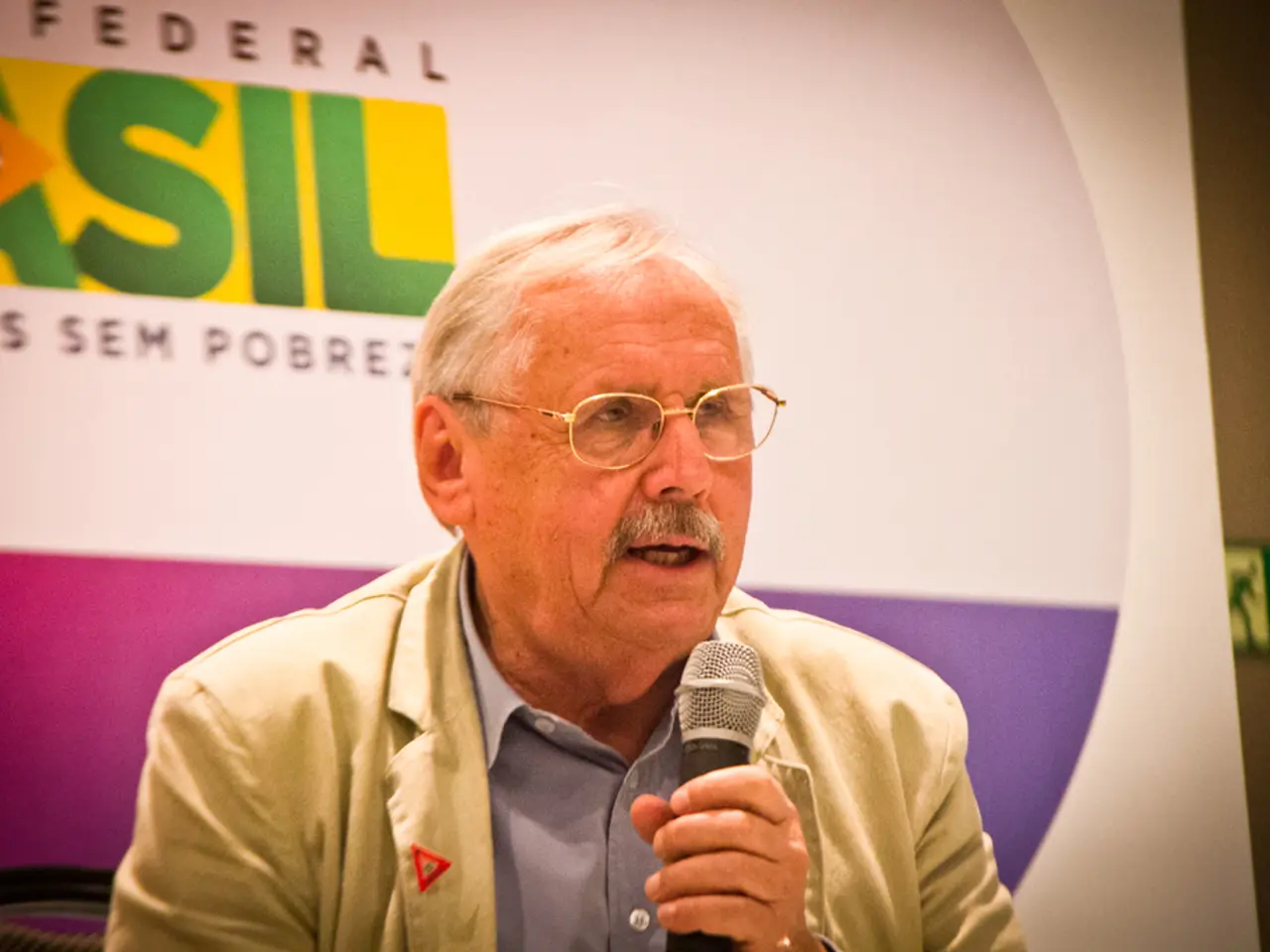Lithuanian Foreign Minister hesitant on granting Palestine state recognition
France and EU Countries to Recognize Palestinian State in September 2025
France has announced its intention to formally recognize the State of Palestine at the United Nations General Assembly in September 2025, marking a significant step towards peace in the Middle East [1][2]. This move, led by President Emmanuel Macron, is motivated by concerns over the destruction in Gaza, ongoing Israeli settlement expansion in the West Bank, and the erosion of the two-state solution [1].
In a coordinated approach, a group of eight European Union countries will also formally recognize Palestine in September 2025 [4]. This collective recognition reflects growing European diplomatic support for Palestinian statehood despite Israel's strong opposition, which describes the move as rewarding terrorism [4].
As of the provided context, nearly 150 countries have recognized Palestinian statehood. However, countries like Lithuania and others have not yet set or announced formal timelines or conditions for recognizing Palestine. Their future recognition will likely depend on political developments and their own foreign policy considerations [4].
Lithuanian Foreign Minister, Kestutis Budrys, has expressed that his country could potentially recognize the Palestinian state, contingent on the right time and other countries doing it first [5]. Budrys emphasizes the importance of discussing and focusing on the priorities of hostages, ceasefire, and stabilization of the process. He is concerned about the situation of hostages who are still being held and the failure of the ceasefire [6].
Early in April, French President Emmanuel Macron expressed that Paris was considering recognizing a Palestinian state, which reportedly angered Israel [7]. Following France's announcement, Slovenia followed suit with its recognition in June [8].
Israel maintains that moves to recognize the Palestinian state are premature [9]. However, Budrys believes that a two-state solution would ensure stability and peaceful coexistence between Israel and Palestine [5]. Macron expressed hope that French recognition would encourage other countries to follow [1].
| Aspect | Details | |-------------------------------|--------------------------------------------| | France’s recognition date | September 21, 2025 at UN General Assembly[1][2] | | Other EU countries involved | A group of eight, alongside France, will recognize Palestine in September[4] | | Motivations | Erosion of two-state solution, Gaza crisis, West Bank settlements[1] | | Israel’s reaction | Strongly denounced as rewarding terrorism[4] | | Lithuania and others | No confirmed timeline; recognition depends on each country’s diplomatic decisions[4] | | Priorities | Hostage release, ceasefire, and stabilization of the process [6] | | Recognized Countries | Nearly 150 countries have recognized Palestinian statehood [9] | | Israel’s stance | Moves to recognize the Palestinian state are premature [9] |
- As the political landscape in the Middle East unfolds, ongoing war-and-conflicts and immigration issues continue to be significant concerns, with France and EU Countries preceding general-news by announcing their plans to recognize the State of Palestine in September 2025, in an effort to foster peace and uphold policy-and-legislation centered on a two-state solution.
- Political developments are shaping the discourse among nations, as France's decision to recognize Palestine is set to inspire more nations to take similar steps, while Israel remains critical of such policy-and-legislation, viewing them as premature and rewarding terrorism, with countries like Lithuania and others yet to make definitive commitments due to their own foreign policy considerations and priorities such as hostage release and ceasefire.








